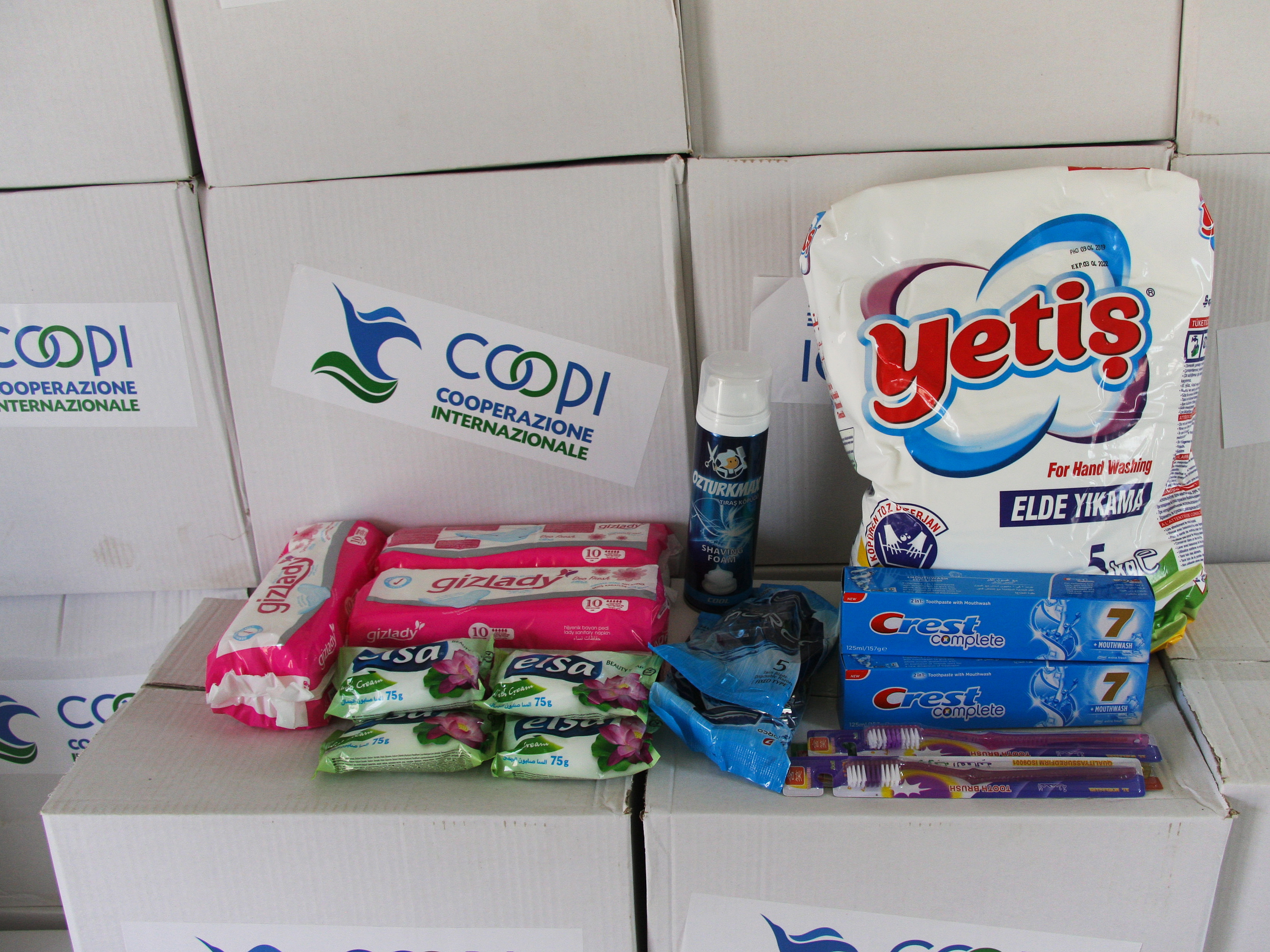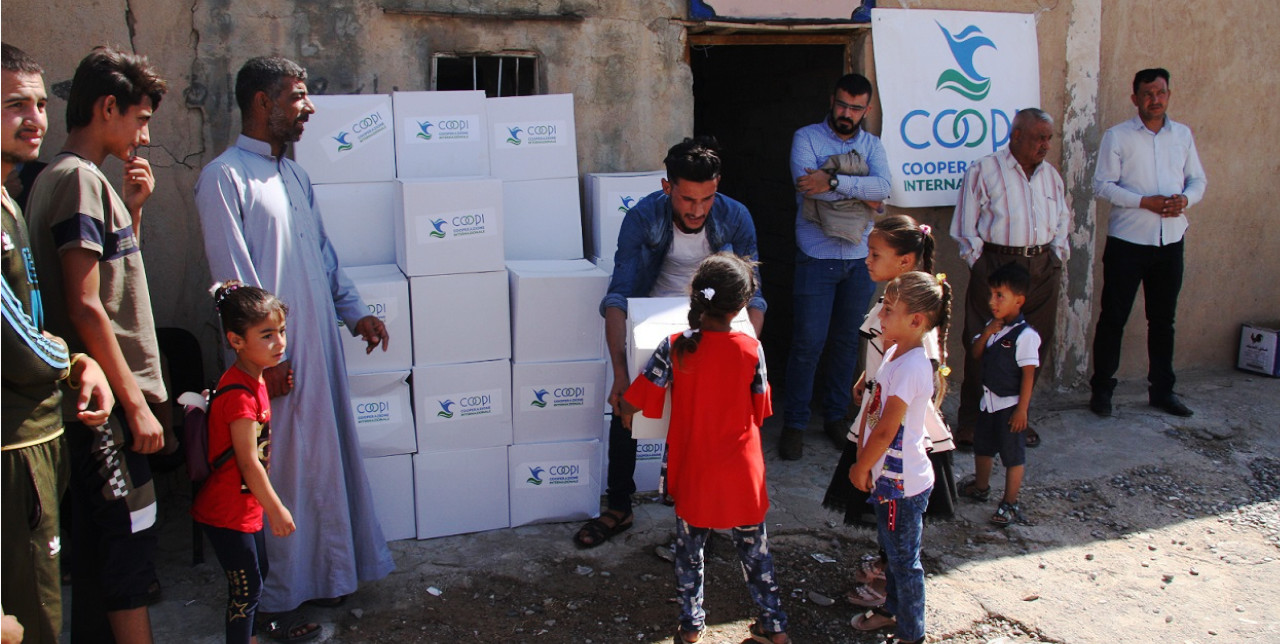27-04-2020 | di COOPI
COVID-19. Our response plan in Iraq
As of April 15th, 2020, 1415 cases of COVID-19 had been registered in Iraq. Both the Government of Iraq and the Kurdistan Regional Government have implemented curfews and movement restrictions to prevent further spread of the virus in the country. At the onset of the outbreak, COOPI carried out an extensive risk assessment of planned and ongoing activities and adopted a resilience-oriented framework to scale activities to respond to the pandemic.
COOPI is intervening the districts of Beiji, Salah al Din governorate in the framework of the project “Water, Hygiene and Sanitation support to most vulnerable displaced population in camps of Diyala and Baghdad Governorates and out of camps in Ninewa, Salah Al Din and Al Anbar” funded by the United Nations Office for the Coordination of Humanitarian Affairs (OCHA) through the Iraq humanitarian fund.
The rehabilitation of WASH (Water, Sanitation and Hygiene) infrastructures is among the activities prioritized by the international community to respond to the pandemic. Indeed, availability of water is key in order to ensure the application of preventive measures. In Beiji, COOPI is currently rehabilitating two water treatment plants, providing durable access to safe water for 18,900 people. Additionally, 3,000 disinfection and hygiene kits will be distributed door-to-door. Hygiene and disinfection materials are often unavailable in rural areas, impairing efforts to adopt safe personal hygiene practices to prevent the spread of viruses and diseases.

Content of the Kit
With regard to the intervention implemented within the framework of the project “Back to a safe school” funded by the Italian Agency for Development Cooperation (AICS), COOPI is assisting vulnerable children to recover from the effects of the crisis through remote psycho-social support (PSS).Moreover, 2,400 disinfection and hygiene kit will be distributed to families.
Communities have a fundamental role in preventing the transmission of diseases. COOPI is adopting innovative ways (social media, WhatsApp, etc.) to build the capacity of community focal points to raise awareness on hygiene practices and disease control measures, giving them the knowledge and the tools to enhance their resilience to future crisis as well.
Finally, COOPI is piloting a system of remote learning to sustain the continuity of schooling for primary school aged children in Qayyarah. By supporting teachers and families to prepare students to succeed in the final year examinations, COOPI will ensure that students receive quality education even under the current circumstances.
COOPI intervenes in Iraq since 2016, targeting areas out of camps in Ninewa and Salah Ad Din with integrated WASH, education and child protection services. Thanks to these adjustments, COOPI will be able to continue supporting the most vulnerable populations.




 Iraq
Iraq